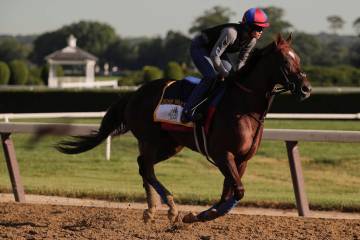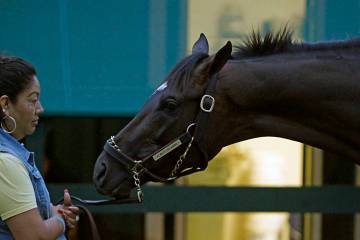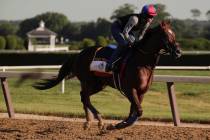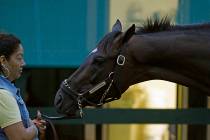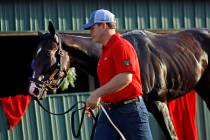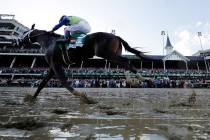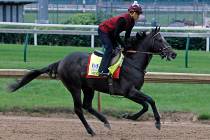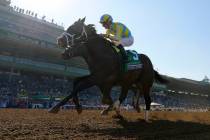Horse racing has faced same issues as daily fantasy games
If you have watched a televised sporting event in the past three months, you had to have seen ads from DraftKings.com and FanDuel.com.
They are the two biggest players in the DFS industry, which stands for daily fantasy sports. The two companies have inundated the media with tens of millions of dollars in advertising.
I am writing about DFS because it is having issues now that are similar to something that happened in horse racing 13 years ago.
The story begins with a DraftKings employee, Ethan Haskell, who inadvertently emailed out a data file before the start of NFL games one day. The data in the file would be extremely useful in selecting your fantasy team to play. It turned out that Haskell, that same weekend, won $350,000 playing on the FanDuel website, which his employer allowed him to play. News of this win got out and took Twitter by storm. It sure looked a lot like insider trading on the stock market.
DraftKings and FanDuel are now in serious public relations damage control. The timing of Haskell's mistake could not have been worse. Both companies have hired third-party law firms to look into their internal controls. The tidal wave of advertising had brought attention to the fact that playing DFS is a lot like sports gambling. Both companies strongly deny that.
The industry is self-regulated, but we are talking about action totaling billions of dollars a year. Now DraftKings and FanDuel have issued new rules that forbid their employees from playing DFS, at least temporarily.
The integrity of the infant DFS industry is at stake. Expect the federal and some state governments to look into DFS, too.
Despite their formerly anti-gambling stance, the pro sports leagues have fully embraced DFS. In fact, two NFL owners, Jerry Jones and Robert Kraft, have bought equity in DraftKings.
Now what is the parallel with horse racing? I have seen this kind cesspool before.
Do you remember Chris Harn and the 2002 Breeders' Cup Pick Six? In brief, Harn was a computer programmer for Autotote. He had access to data and the control room at Autotote headquarters in Delaware. It tempted him with an ideal scenario to steal.
At first, Harn skimmed thousands of dollars from Pick 4 and Pick 6 pools. However, he needed a third party to cash the tickets at OTBs and racetracks. So he enlisted some fraternity brothers of his from Drexel University.
The stealing went unnoticed until they got greedy with the 2002 Breeders' Cup Pick 6. Harn used his internal access to place a Pick 6 ticket that singled the first four winners and then went all-all in the last two legs. It could have worked again except for this: A 43-1 long shot, Volponi, won the Classic. Thus, Harn and his partners ended up with the lone winning ticket worth more than $3 million.
Eventually, Harn and his cohorts served jail time. The parallel to DFS is this. When your employees have access to data and controls, a potential loophole exists to possibly manipulate the outcome. At minimum, it creates a huge edge in formulating playing strategy.
I'm not saying Haskell did anything wrong. That issue will be resolved in due time. But the fact that he had access to this data file and then wins $350,000 on the same weekend just smells like month-old rotting fish.
— Richard Eng's horse racing column is published Friday in the Las Vegas Review-Journal. He can be reached at rich_eng@hotmail.com. Follow him on Twitter: @richeng4propick.




